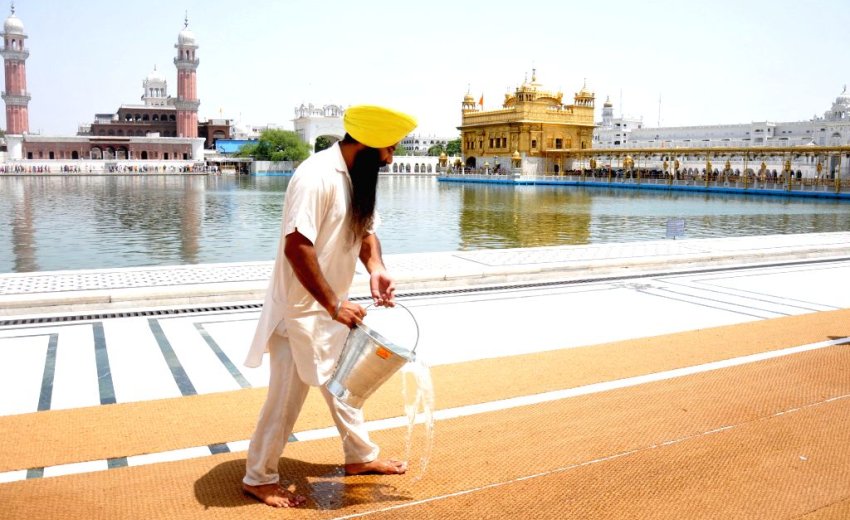In the diverse tapestry of Indic religions – including Hinduism, Buddhism, Sikhism, and Jainism – there exists a unifying ritual that encapsulates the essence of devotion and respect: Parikrama, also known as Pradakshina. This ancient practice involves the clockwise circumambulation of sacred entities, a physical expression of reverence deeply embedded in these spiritual traditions.
The term 'Parikrama' itself, rooted in Sanskrit, translates to "the path surrounding something," and its alternative name, Pradakshina, means "to the right," signifying the direction of movement during the circumambulation.
Parkarma seva in Golden Temple
Sri Harmandir Sahib, more widely known as The Golden Temple is a revered place, a beacon of spirituality and serenity.It attracts a staggering number of visitors, approximately 10,000 each day. This figure often triples during holidays and special celebrations, which are frequent in the vibrant culture of India.Bordering the shimmering Sarovar lies the Parikrama, a hushed ribbon paved with marble.It is an ideal place to soak in the atmosphere of the Golden Temple.Pilgrims walk along this tranquil path, humming hymns and seeking solace.
Every year, a special tradition unfolds that sees many of us rise at the early hour of two in the morning. It involves washing the floors of the Parikarma. It's a matter of great privilege and fortune for us to be able to serve the community through this act of seva, a practice deeply embedded in our culture and traditions.
Seva, a term that embodies the essence of selfless service, is a ritual that takes place daily at the Golden Temple, precisely at 2 AM and then again at 2 PM. It's not just a duty but an exciting group activity that fosters a sense of community and cooperation. Picture this: some stand on the steps submerged in water, diligently filling buckets. These buckets are then passed along to others who carefully splash the water over the temple's exquisitely crafted marble floors. Another group, armed with brooms, swiftly sweeps the water into side ditches, where it is filtered and purified. This efficient and well-coordinated effort ensures that the entire compound is cleansed and sparkling within a mere 25 minutes, a testament to the power of collective effort and devotion.
At Miri Piri Academy, a simple yet profound act embodies the very essence of the school's spirit. Students, both current and alumni, unanimously agree that this activity stands out as their most cherished school event. What makes it even more remarkable is the transformative impact it has on their lives. The concept of seva, or selfless service, resonates deeply with the students, influencing not just their time at the academy but also their life beyond its walls.
Parikrama Sewa at the Golden Temple is a unique experience that fosters values of humility, selflessness, and service, seamlessly weaving them into the fabric of daily life. It's not merely an activity; it's a journey of inner growth and expanding consciousness. As students engage in this practice, they carry its profound lessons with them, shaping their perspectives and actions in the world outside. This act of seva at Miri Piri Academy isn't just a school event; it's a life-changing experience that leaves an indelible mark on the hearts of those who participate.
*Based on an article by Guru Amrit Ramos, published in Miri Piri Academy on 19th October 2010
